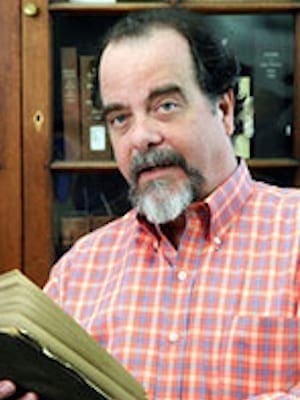Today, the life of Rev. Dr. James Hal Cone will be celebrated at Riverside Church in New York City.
Immediately after the service, his mortal remains will be interred at Fair Lawn Cemetery in Fair Lawn, New Jersey.
Over the last week and more, the story of Cone’s rise from Jim Crow Arkansas to a revered position and presence for half a century at Union Theological Seminary, arguably the most prestigious and influential seminary in the United States, has been the stuff of long obituaries in major newspapers, reflective pieces in various media and countless testimonies in social media, coffee shops and classrooms.
Were some clever reviewer of the week’s attention to Cone to produce a word cloud, I am confident that the four dominant words would be: founder, father, black and theology.
The formidable shadow of James Cone that has fallen across our paths is rather paradoxical – something often said about every aspect of his revolutionary theology and practice since 1969 and the publication of “Black Theology and Black Power.”
Cone was not an imposing man. Upon first hearing his voice, many were disappointed that he lacked the stentorian quality of Martin Luther King Jr. or the crackling intensity of Malcom X.
If anything, Cone had the mix of the rhythm of a preacher and the subtle power of poetic expression characteristic of James Baldwin.
The paradox is that this slight, gentle and humble man did the hard – yes, painful – work of challenging the torpor of Christianity amid the social, philosophical and theological upheavals of the 1960s and beyond, which now is our present.
Yes, James Cone was the founder of black theology, but he was so much more, precisely because what he conceived he nurtured in the lives of his students, including those who may only have known him through his writing and speaking. What Cone began, many will continue.
There are at least four significant legacies for which Cone should be remembered:
1. James Cone revived the place of experience as an enduring source for constructing Christian theology.
In the 18th century, Oxford-trained John Wesley developed a rationale for considering Scripture, tradition, reason and experience as the four corners of theological thinking.
What came to be called the Wesleyan Quadrilateral, implied in Wesley’s writings, has been a standard template for theologians and theological students to seek balance in the shaping influences behind formations of beliefs and practices.
In Cone’s second major work, “A Black Theology of Liberation” (1970), he acknowledged the long practice of using the Wesleyan Quadrilateral, but he radically tipped the balance of the sources.
Because of his conviction that black people in the United States came to faith over 300 years of the oppressions of slavery and then Jim Crow, Cone elaborated the nuances of the emergence of a distinct black theology in three ways: black experience, black history and black culture. For Cone, black theology primarily is forged in experience.
2. James Cone reformed an understanding of the method and norm of Christian theology.
Christian theology/theologies don’t merely happen. Because theology is a human attempt to think and speak and write meaningfully about God with specific reference to Jesus of Nazareth, confessed to be the Christ, theology is exacting work that demands attention to method as well as content.
In two words, the method and norm of black theology are: context and liberation.
Throughout the years, Cone pursued his vocation as a teaching theologian and was insistent that any claim of a universal truth must be rooted in a particular manifestation of truth in practice.
An easier way to say it is to underscore that context(s) always shapes impressions that, then, allow for confessions.
For Cone, the universal claims of Christian theology should always be rooted in the particular context(s) of oppression.
That is the singular insight that Cone developed in his third major work, “God of the Oppressed” (1975).
The method of contextual theology moves inexorably to the norm of liberation. Often Cone concluded that a theology that does not focus upon liberation is not Christian.
3. James Cone reframed the practical dimension of Christian theology as political.
When Cone burst on the scene with his first major work, “Black Theology and Black Power” (1969), he chose to stand in the gap and absorb the tensions between the movements associated with Martin Luther King Jr. and Malcolm X.
From beginning to end, Cone’s life as a teaching theologian encouraged others to follow a path that included a significant grasp about ideas but finally moved toward actions.
A stinging example of Cone’s point shows up in Cone’s last major work, “The Cross and the Lynching Tree” (2011), where Cone offered a critique of one of the United States’ most respected Protestant political theologians, Reinhold Niebuhr.
Cone correctly calls out Niebuhr for lacking the courage of his convictions about social justice when Niebuhr counseled a “wait for your time” posture to black activists.
Watch Cone’s lecture in 2015 at Elmhurst College, a place synonymous with Reinhold and H. Richard Niebuhr.
4. James Cone renewed the horror of the cross as a cradle for Christian hope.
In “The Cross and the Lynching Tree,” Cone rails against the romanticizing of the cross, most frequently in devotional jewelry – pendants and earrings – as an example of missing the point of the gospel.
Cone muses that the cross was the first lynching: a public violence that was intended to suppress political and social resistance to an unjust system intent upon muting the voices of the oppressed.
Cone’s voice has fallen silent. His words and spirit will endure. Through hope.
Richard Wilson is the Columbus Roberts professor of theology and chair of the Columbus Roberts Department of Religion in the college of liberal arts at Mercer University in Macon, Georgia. He blogs at Revisiting Liberia.

